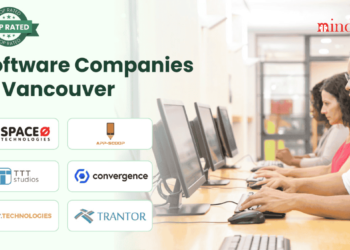1. What is Lumenalta, and why does Their Research matter
How Lumenalta research highlights AI’s growing role in private equity. Lumenalta isn’t just another think tank. They specialize in analyzing how technology reshapes industries, especially finance. Their latest deep dive into AI’s role in private equity is making waves because it’s data-driven, comprehensive, and easy to understand. How Lumenalta research highlights AI’s growing role in private equity comes from months of analyzing trends, interviewing industry experts, and studying real-life examples.
2. Understanding AI in Simple Terms
Let’s keep it simple. Artificial Intelligence (AI) refers to machines or software that can think, learn, and make decisions like humans. Imagine having a super-smart assistant that never sleeps, processes data lightning-fast, and spots things a human might miss. That’s AI in a nutshell.
3. Private Equity: The Basics
Private equity (PE) firms invest in private companies or take over public ones to improve them and sell them later for a profit. Think of PE firms as business makeover specialists. They buy a company, fix what’s broken, and help it grow before selling it for more than they paid.
4. The Intersection of AI and Private Equity
This is where things get interesting. Traditional PE relied on human intuition, long hours of research, and a fair amount of guesswork. Now, AI steps in to take the guesswork out of the equation. How Lumenalta research highlights AI’s growing role in private equity shows that AI brings efficiency, speed, and accuracy, changing how deals are found and decisions are made.
5. Key Findings from Lumenalta’s Research
Here’s the juicy part. According to Lumenalta, AI is:
- Speeding up data analysis: What took weeks now takes hours.
- Improving deal sourcing: AI identifies opportunities humans might miss.
- Enhancing due diligence: AI quickly verifies data accuracy and risks.
- Boosting returns: Firms using AI outperform those that don’t.
6. How AI Is Changing Investment Decisions
AI doesn’t just crunch numbers. It provides actionable insights. For example, instead of reading through hundreds of pages of financial reports, AI can summarize key points, highlight risks, and even predict future outcomes. This allows PE professionals to make better-informed decisions in a fraction of the time.
7. Speed and Accuracy: The AI Advantage
Time is money, especially in private equity. AI can analyze massive datasets in seconds. Imagine trying to read every book in a library versus having someone give you a precise summary in minutes. AI filters out the noise and delivers what matters, reducing errors and improving accuracy.
8. Risk Assessment Gets Smarter with AI
Risk is a big deal in investing. Lumenalta’s research shows that AI helps identify red flags early. Whether it’s financial inconsistencies or potential legal issues, AI can spot them before they become costly mistakes. It’s like having an early warning system in place.
9. AI-Powered Deal Sourcing: A Game Changer
Finding the next big opportunity is half the battle. Traditional methods relied on networks and manual research. AI, however, scans global data sources 24/7, identifying undervalued companies and predicting their growth potential. Lumenalta’s report highlights firms that increased deal flow by 30% using AI.
10. Case Studies: Real-World Examples from Lumenalta
Lumenalta’s research includes real-life success stories. One PE firm used AI to analyze customer reviews and social media sentiment before acquiring a consumer goods company. They spotted growth trends competitors missed and made a highly profitable investment. Another firm used AI for predictive analytics, leading to a 40% increase in ROI.
11. The Human Touch: Why People Still Matter
Despite AI’s power, Lumenalta emphasizes that human judgment remains essential. AI can provide data and recommendations, but human intuition and experience guide final decisions. It’s a partnership — think of AI as the compass and humans as the captain steering the ship.
12. Challenges of Using AI in Private Equity
It’s not all smooth sailing. Lumenalta’s research points out several challenges:
- Data quality: AI is only as good as the data it’s fed.
- Integration: Merging AI tools with existing systems can be tricky.
- Cost: High-quality AI systems require significant investment.
- Trust: Some professionals are hesitant to trust AI insights over their own.
13. What the Future Holds: Predictions by Lumenalta
Lumenalta predicts that AI adoption in PE will skyrocket over the next decade. They foresee:
- More automated decision-making.
- Greater use of predictive analytics.
- Enhanced personalization in deal sourcing and strategy.
- A shift towards real-time data analysis and dynamic investing models.
14. How PE Firms Can Start Leveraging AI Today
Wondering how to get started? Lumenalta offers practical steps:
- Assess current processes: Identify where AI can add value.
- Invest in quality data: Clean, accurate data fuels AI effectiveness.
- Start small: Implement AI in one area before scaling.
- Train your team: Ensure they understand how to use AI tools.
- Partner with AI experts: Collaborate with tech specialists to maximize success.
15. Final Thoughts and Key Takeaways
How Lumenalta research highlights AI’s growing role in private equity is a wake-up call for the industry. AI is no longer a futuristic idea — it’s here, and it’s changing the game. From faster decision-making to better risk management, AI offers massive advantages. But it’s not a replacement for human expertise; it’s a powerful tool that, when used wisely, can lead to smarter, more profitable investments.
FAQs
1. What is the role of AI in private equity according to Lumenalta?
Lumenalta’s research shows AI helps PE firms make faster, more informed decisions by analyzing data, assessing risks, and identifying new opportunities.
2. How does AI improve deal sourcing in private equity?
AI scans global data to find potential deals, predicts company growth, and identifies undervalued businesses, boosting deal flow by up to 30%.
3. Are there risks in relying too much on AI for investment decisions?
Yes, Lumenalta warns about challenges like data quality issues, integration difficulties, and over-reliance on AI without human oversight.
4. What kind of companies benefit most from AI in private equity?
PE firms focusing on data-heavy industries, like technology and consumer goods, gain the most from AI’s insights and predictive analytics.
5. How can a private equity firm start using AI today?
Lumenalta recommends starting small by identifying areas where AI can help, investing in good data, and partnering with AI experts to implement tools effectively.




















